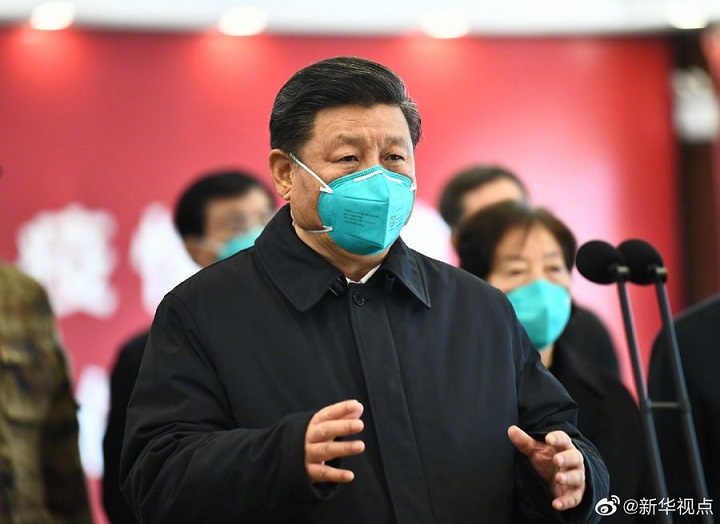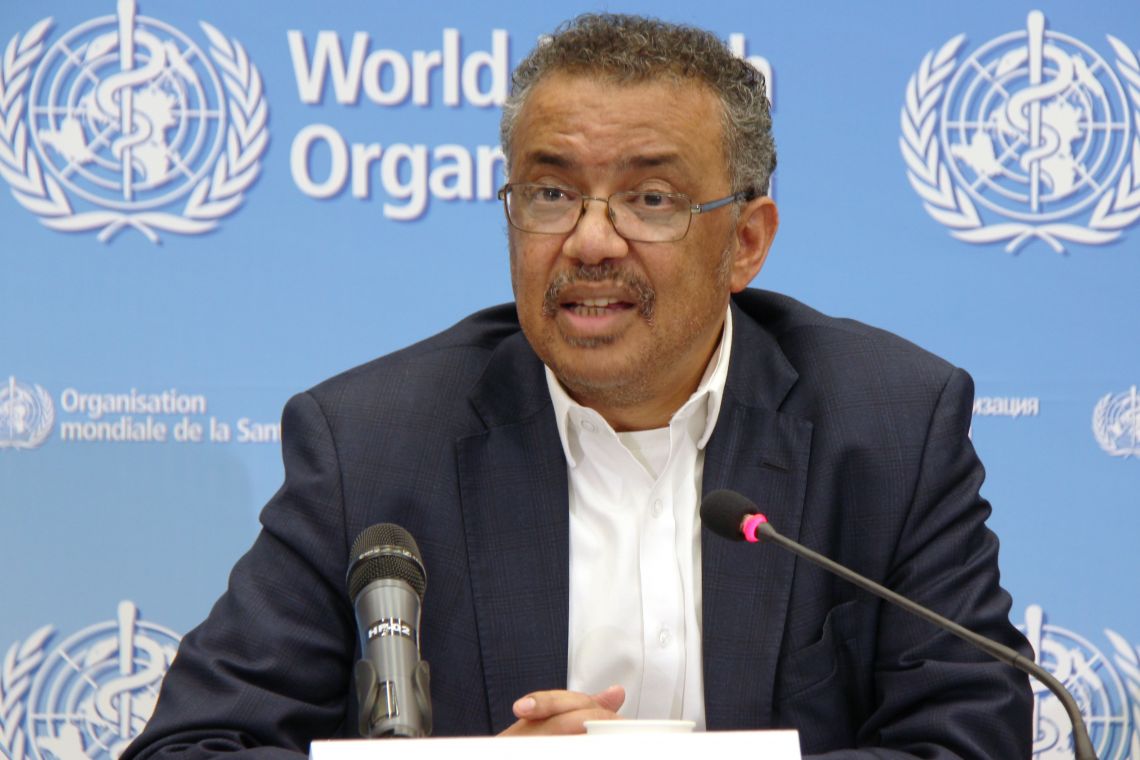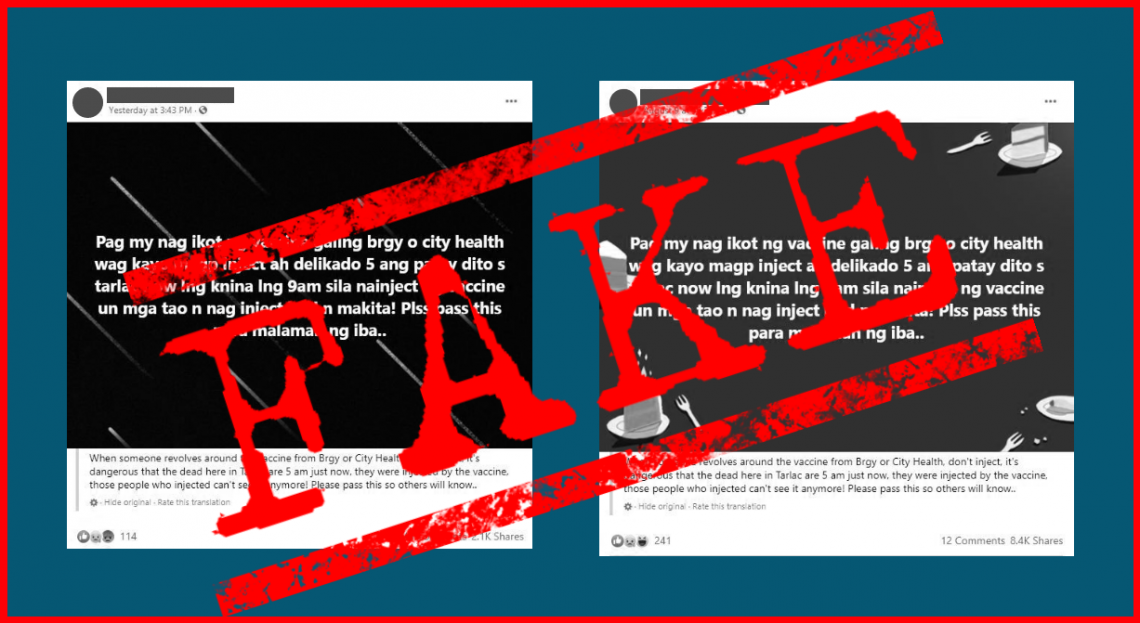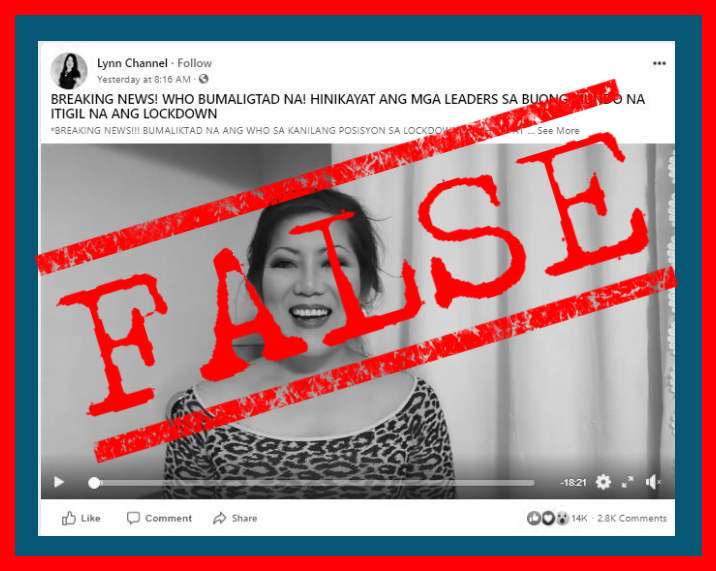Breaches and Reparations

President Xi Jinping speaks at Huoshenshan Hospital in Wuhan, March 10, 2020. (Xinhua)
What are the remedies available under international law for the injury suffered by other states as a result of China’s alleged mishandling of the COVID-19 pandemic?
China may be liable to pay reparations to injured states over its failure to promptly notify the world of the outbreak of the SARS-CoV-2 virus as required by the WHO’s International Health Regulations (2005).
Whenever a State commits an internationally unlawful conduct, it must pay reparations to the injured parties for the damage they suffered . It is a principle of international law that the breach of an agreement involves an obligation to make reparation in an adequate form,” as the landmark Chorzow Factory Case (1927) would put it.
Reparation, per Chorzow, “must, as far as possible, wipe-out all the consequences of the illegal act and re-establish the situation which would, in all probability, have existed if that act had not been committed.”
If restitution is no longer possible, “payment of a sum corresponding to the value which a restitution in kind would bear” will suffice, along with an award of damages for loss sustained which would not be covered by restitution in kind or payment in place of it.”
According to the 2001 LaGrand Case, an assessment of damages may also come with an award of satisfaction, or a formal apology and assurance from the offending state that its unlawful conduct will not be repeated.
Both the apology and the pledge of non-repetition are important, because if that same state once again violates the same obligations in the future, these may be taken in evidence in another proceeding for reparations for purposes of ascertaining punitive damages, the repetition being a doubly flagrant and morally reprehensible violation of its international obligations/
Causal link requirement
As the obligations in question involve a positive duty that must be discharged to prevent the spread of an infectious disease or a public health emergency of international concern, reparations may involve a determination by an international tribunal of a causal link between the alleged breach of an international obligation and the damage suffered by the injured States.
One applicable model of causation is the “sufficiently direct and certain causal nexus test“ established by the International Court of Justice in the Bosnian Genocide Case (2007). This means that an injured state must establish from the case as a whole and with a sufficient degree of certainty that the pandemic would have been averted had China complied with its treaty obligations under IHR (2005).
Or, it may be a simple test of an obligation of conduct as in Corfu Channel, where the failure to discharge a positive duty to notify under customary international law was enough to assess damages against the offending state, Albania, which failure was deemed a form of negligence. In fact, in the Rainbow Warrior Arbitration (1986), it was held that mere violation of an obligation, “irrespective of material damage, can cause moral or legal damage.”
Indeed, it may be argued that the duty to notify codified in the IHR (2005) is not only a treaty norm but also a rule that, since the treaty was established in 1969, has crystallized as well as a norm of customary international law considered binding on all states, given the scale and effects of the dangers it addresses.
Moreover, the unprecedented spread of the deadly disease may yet give rise to a recognition that the failure to notify the world on public health emergencies of international concern now involves a fundamental and common interest of the international community of nations.
In such a case, even an uninjured State may bring a claim against China on behalf of the international community, under Art. 48 (1)(b) of the Draft Articles on the Responsibility of States for Internationally Wrongful Acts. In any case, the liability for damages assessable against China for its alleged breach of international obligations would almost certainly involve staggering amounts.
Dispute settlement under the IHR (2005)
Art. 56 of the IHR(2005) provides member states with a graduated procedure for settling any dispute on the interpretation or application of the regulations.
Firstly, the provision requires parties to a dispute to settle it peacefully according to an agreed mechanism, including good offices, mediation, or conciliation. Secondly, if it fails, they may then refer it to the Director General, “who shall make every effort to settle it.”
However, the current WHO Director General, Tedros Adhanom Ghebreyesus, an Ethiopian, may not be the best person to settle it, having been repeatedly criticized by various sectors for his lavish praise of China’s response to the Wuhan outbreak.
Or a member state party may also declare in writing to the Director General that it accepts compulsory arbitration to settle such dispute. In such case, the arbitration will be conducted under the Permanent Court of Arbitration’s Optional Rules for Arbitrating Disputes between Two States applicable at the time a request for arbitration is made.
Any award made pursuant to the arbitration will be binding and final on the parties. Member states are also allowed to agree to settle their disputes using other dispute settlement mechanisms. However, if the dispute is between a member state and the WHO itself, it will be submitted to the Health Assembly.
China has not made any reservation on, or rejection of, any provision of the IHR (2005). However, it has not submitted a written declaration accepting compulsory arbitration.
Shifting the narrative?
But already, China is beginning to shift the narrative away from its alleged responsibility over the pandemic.
In early March, the Xinhua News Agency, a government mouthpiece, published an editorial claiming that “the world should thank China” for the huge sacrifices and extreme measures it had undertaken to fight the new coronavirus, which supposedly bought the rest of the world time, Asian Nikkei reported on March 11.
The Guardian also reported on March 13 that the Chinese Foreign Ministry now accuses the United States Army of having actually brought the virus to Wuhan, and Chinese diplomats and state media are echoing the allegation.
Also, the Chinese government just published a book, A Great Power’s Battle Against Epidemic, which praises Chinese Premier Xi Jinping’s “strategic foresight and outstanding leadership ability” in fighting the outbreak in Hubei province, according to the Asian Nikkei.
But the book was quickly withdrawn from circulation when Hubei residents protested that it was inappropriate to distribute the book when the battle against the virus not yet over.
President Donald Trump would not be outdone, saying China should be held to account for the “Chinese virus.”
What’s interesting is that the Chinese government is on a diplomatic offensive, sending medical teams and tons and tons of crucial medical supplies to Italy, Serbia, Liberia, and the Philippines.
On March 21, Time magazine quotes Czech Interior Minister Jan Hamacek as saying that China is “the only country capable of supplying Europe with such amounts.” The magazine also quotes a noted China expert Julian Ku, professor of international law at Hofstra University in New York as saying that the Chinese government hopes to leverage its experience in bringing the new coronavirus under control.
“The Chinese government’s failures … will be less harshly viewed in light of the failures of other governments to respond effectively as well,” he told Time.

WHO Director-General Tedros Adhanom Ghebreyesus, speaks at a press conference after the WHO emergency committee’s meeting on the novel coronavirus in China at its headquarters in Geneva, Switzerland, Jan. 22, 2020.
WHO: the weakest link?
Even the WHO Secretary General Tedros Adhanom Ghebreyesus had praised the Chinese efforts to combat the pandemic, and even called on countries to avoid travel bans to and from China.
“We reiterate our call to all countries not to impose restrictions that unnecessarily interfere with international travel and trade, Tedros said in an official WHO statement on February 4. “Such restrictions can have the effect of increasing fear and stigma, with little public health benefit.”
Tedros’s praise for the Chinese response to the virus baffled some experts, according to a Washington Post report on February 8. These experts think that the international body’s positive appraisal of the Chinese handling of COVID-19 early on may have given other nations a false sense of security that the disease has not spiraled out of control.
“We were deceived,” Lawrence Gostin, a professor of global health law at Georgetown University who also provides technical assistance to the WHO told the Washington Post. “Myself and other public health experts, based on what the World Health Organization and China were saying, reassured the public that this was not serious, that we could bring this under control.”
Others are more caustic in their criticism.
On March 17, The Hill, a conservative American online magazine, published an opinion piece by Bradly A. Thayer, a professor of political science at the University of Texas and co-author of the book How China Sees the World: Han-Centrism and the Balance of Power in International Politics, and Lianchao Han, vice president of Citizen Power Initiatives for China. The two said Tedros and China’s XI Jinping “should be held accountable for recklessly managing this deadly pandemic.”
They accused Tedros of helping China “play down the severity, prevalence and scope of the COVID-19 outbreak” after meeting Xi on January 28 in Beijing.
They also noted China’s connections to the WHO Secretary General’s country of origin Ethiopia, which, they say, is now called East Africa’s “Little China” with heavy Chinese investments. Indeed, it has become “China’s bridgehead to influence Africa and a key to China’s Belt and Road initiative there.”
They also provided little known facts about Tedros, who, they say, was elected to his position with the WHO in 2017 “despite the fact that he was not trained as a medical doctor and had no global health management experience.” Instead, he was a former minister of health and minister of foreign affairs for Ethiopia before going to the WHO, where one of his first official acts was to propose to appoint then-Zimbabwe dictator Robert Mugabe as a WHO goodwill ambassador.
If so, we may see for the first time a suit for “complicity” of the WHO, an international organization – an area in international law that is admittedly still in development.
“Capable of repetition, yet evading review…”
In November 2017, an article in the Smithsonian Magazine asked whether China is going to be ground zero for a future pandemic. The author, Melinda Liu, argued that the country “is uniquely positioned to create a novel flu virus that kills people.” Why so?
She explained:
“On Chinese farms, people, poultry and other livestock often live in close proximity. Pigs can be infected by both bird flu and human flu viruses, becoming potent ‘mixing vessels’ that allow genetic material from each to combine and possibly form new and deadly strains. The public’s taste for freshly killed meat, and the conditions at live markets, create ample opportunity for humans to come in contact with these new mutations.”
In addition, in a country of one billion people, only two percent receive flu shots annually, she wrote, underlining a grave lack of community immunity for flu.
There’s also the problem of the repressive political system, in the country, shown in the Chinese response to SARS outbreak, in which “Chinese apparatchiks initially tried to cover up the epidemic, creating a worldwide scandal.”
She did note an improvement in China’s handling of the H5N1 bird flu outbreak in 2013. Alas, the improvement would not last long.
Only three years later, Liu’s prediction would come true – a new pandemic from China has gripped the world, and it is with such virulence that, in the United States alone, it could kill as many as 1.7 million people, according to a US CDC worst case scenario estimate.
If anything, China’s immediate responses to the SARS and COVID-19 pandemics seem to underline that public health emergencies of international concern and authoritarian systems lacking in transparency and political freedoms make for a dangerous mix.
A formal legal proceeding before an international tribunal, where evidence for or against China’s alleged responsibility for the pandemic are heard by impartial judges, may be the best way to establish the truth about COVID-19, and to stop another pandemic from ravaging the world.
Yet it remains a big question whether China would allow itself to be dragged into yet another contentious international arbitration.
Injured states may take the first step of asking the good offices of UN Secretary General Antonio Guterres to find a common solution with China for the damage they suffered as a consequence of the latter’s failure to promptly notify the world about the true nature of contagion that emerged in Wuhan late last year.
Mr. Bagares is an alumnus of the University of the Philippines and the Vrije Universiteit Amsterdam. He teaches public international law at the Lyceum Philippines University College of Law and is a trustee of the Philippine Society of International Law.




